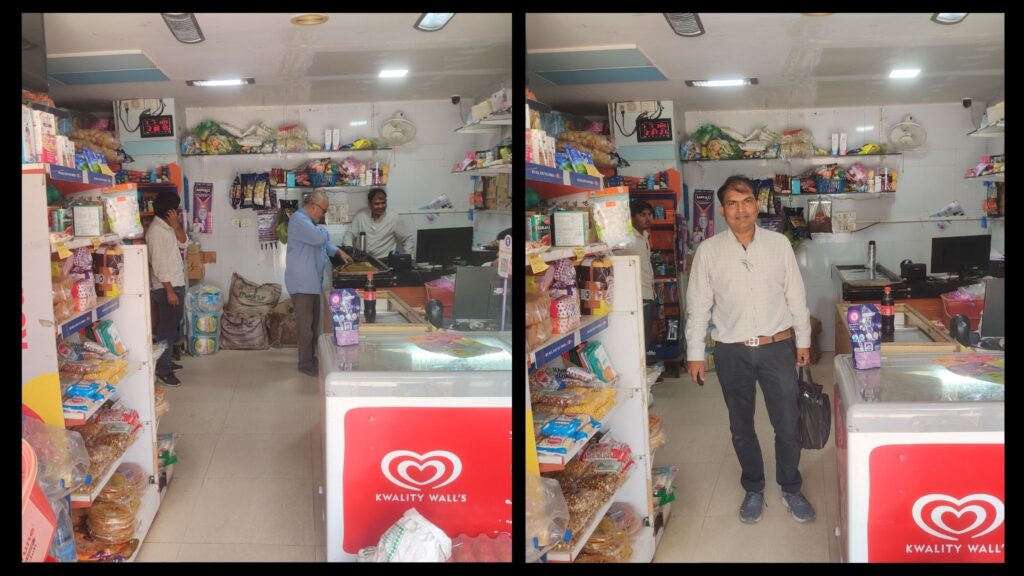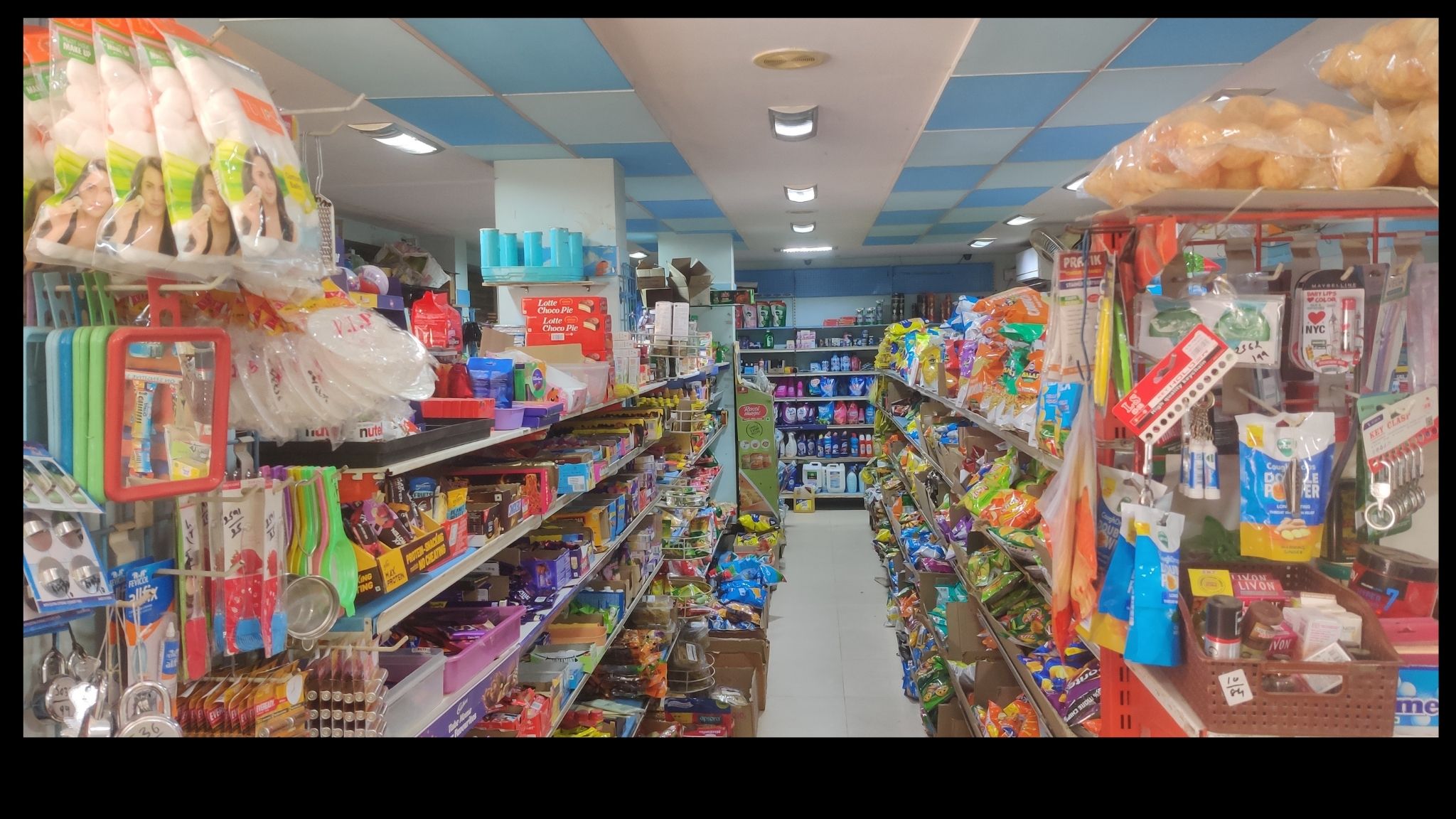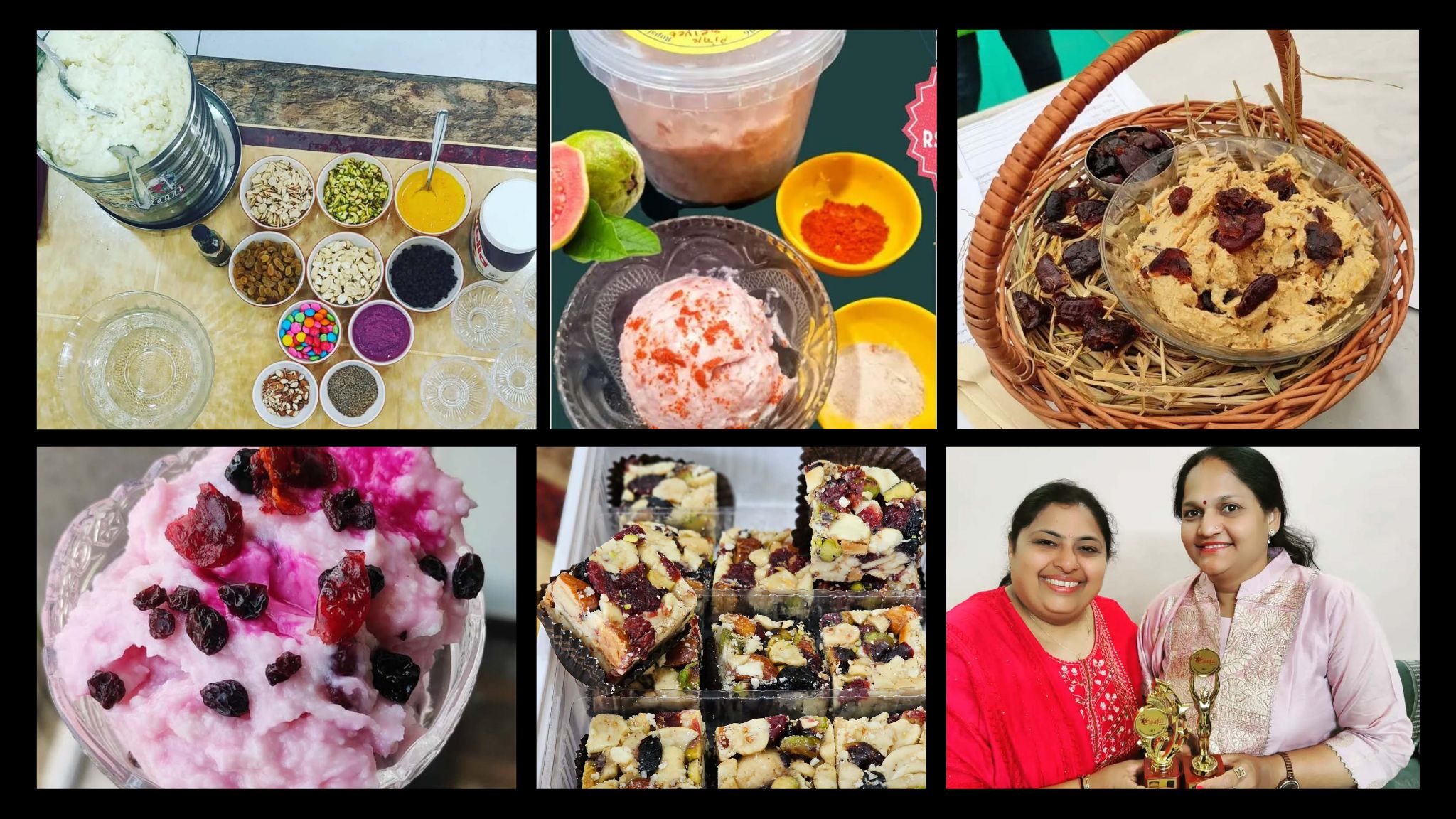Once upon a time, in 2010, when Hitesh. N. Shah laid the foundation for the Bravo Bazaar, the supermarket was located close to a dead-end. Today, the same street, Harni-Sama link road, is one of the most posh areas in Vadodara, as it is the closest to the airport. He has envisioned the possibility of a new supermarket in a field where D-Mart, Bansal, and Reliance Fresh are already ruling the roost. And today, he is living the dream.
“We took the property in 2010. It was a dead-end here; the bridge was not built, so we had to cover this area,” Hitesh N. Shah tells Gujpreneur in an exclusive interview.
The Buildup
Having worked with Fast-Moving Consumer Goods (FMCG), Hitesh and his brother had a deep understanding of consumers. Hitesh was a distributor of Dabur, an ayurvedic and wellness giant, since 1992. Through his distribution, all over Vadodara, he was able to understand the needs of the consumers well.
Later, with a burning desire to give more options to the consumers, he acquired the property for Bravo Bazaar in 2008. It took him two years to turn the nearly 1000 sq. ft. area into a supermarket. In these two years, he not only identified the products but also shaped the interiors of his supermarket.
“I was in the FMCG line. We started the FMCG business as a Dabur distributor in 1992. We used to supply all over the city. We thought of going ahead with FMCG. In 2008, we took the property, and in 2010,” Hitesh recalls.
“We have the experience of 10 years now to understand what customers here want. So we keep more products. We have 4,500 products. It depends. My area is 1000 sq ft. We have a stock of INR 15 lakh, some of which is on credit. The rent is different, rack building cost us around INR 4.5 lakh,” he said.

After shaping the interiors; there were minor hiccups on the way. Hitesh and his brother observed that the major part of sales takes place in the morning.
“The area was limited. Initially, we did not get many returns but we used to run both separately. My brother and I used to run it. There was more work in the morning,” Hitesh said.
And, then, there were logistical hurdles during the COVID-19 pandemic, along with the supermarkets forced to shut or run for shortened periods.
Turning Into Franchise Chains
Bravo Bazaar has a diverse pool of products. It ranges from haircare, bodycare, pet food, and other regular FMCG products, including cold drinks and cosmetics. Although Hitesh says that cosmetic products sell more online, his dhando is earning an estimated INR 45,000-50,000 on average every month and INR 13-15 lakh sales yearly. Food items from Balaji and Gokul, which include ghee and chips, give sales more than the other products.
Hitesh, now, envisions turning his brainchild into a franchise brand. And for that, he is ready to educate the staff and teach them the basics of turning. “It’s like Bansal (Super Market). It can have 2-3 chains. But if we add someone, then it is possible. We are open to anyone taking the franchise. After their store purchase, we can help with inventory, we can give an entire setup. Educating staff, six months of guidance. If there is any problem, then we can help,” Hitesh said.
Conclusion
Hitesh’s story would not have been possible alone. Thanks to his brother and his grit, persistence, and adaptability, he is running a growing business. He managed to keep going when COVID-19 hit his shop with logical understanding. His nearly two decades of experience in FMCG further helped him to structure his business. Moreover, he is also open to training the new business owners and workers on how to run a successful retail chain mart.
Today, when you enter Bravo Bazaar, music on an old television set, a friendly smile from those working at the counters, welcome you. Gradually, Bravo Bazaar has turned into a dhando catering to all regular needs of the locals. The location of the Bravo Bazaar, close to Sama Talav, makes it more amicable.
But there is always room for improvement. The retail sector in India is estimated at $1.3 trillion, with the grocery sector contributing to over 60 per cent. The traditional kirana stores are still dominating the market. But the organized supermarkets are joining the growth due to urbanization, change in consumer preferences, demand for convenience, and quality. In this comprehensive article, we not only covered Hitesh’s journey as an entrepreneur, his setbacks and gains. But also tried giving our readers an outlook on the retail market and what’s next to come. If you enjoy reading such a piece, stay tuned with Gujpreneur as we keep covering more entrepreneurial journeys.







